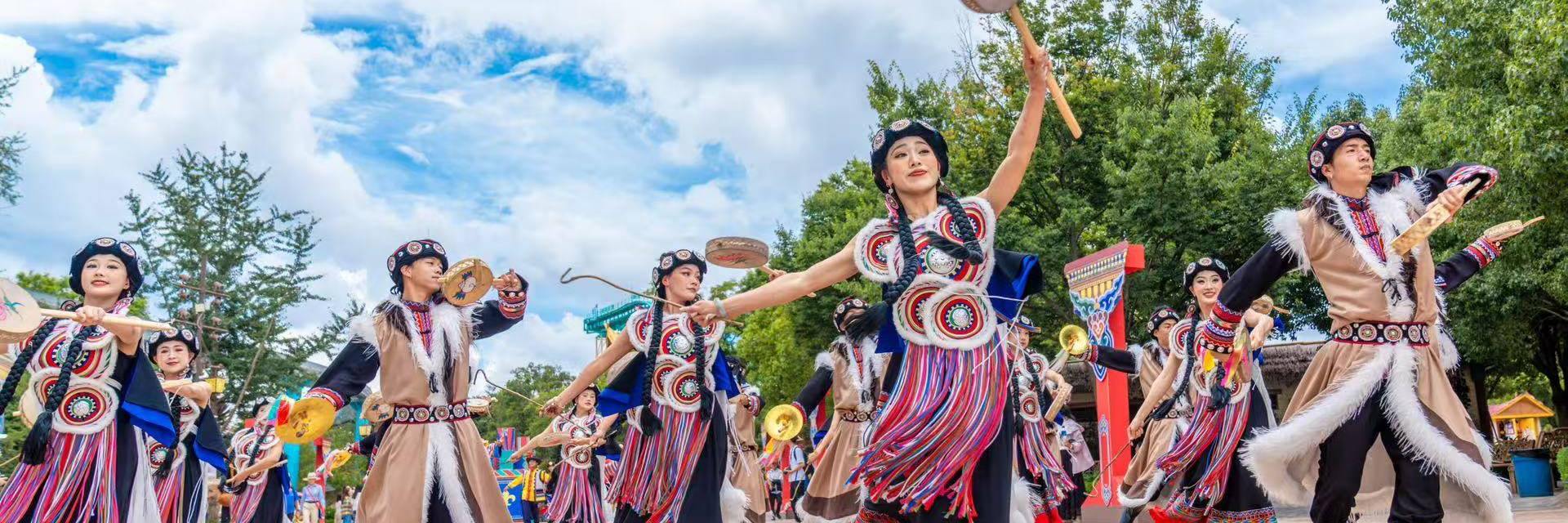
25 Ethnic Minorities in Yunnan: Living Traditions Explored
By Martina
Hi, I’m Martina! I’ll never forget my first encounter with the dynamic culture of ethnic minorities in Yunnan province – the vibrant colors, the warm smiles, and traditions that seemed to transcend time. Yunnan isn’t just a destination; it’s a living museum of cultures, where 25 ethnic groups preserve ancient ways of life against breathtaking backdrops of terraced fields and misty mountains. Each visit reveals new wonders – whether sharing tea with Bai elders in Dali, watching Dai dancers in Xishuangbanna, or hearing Naxi ancient music echo through Lijiang’s cobblestone streets.
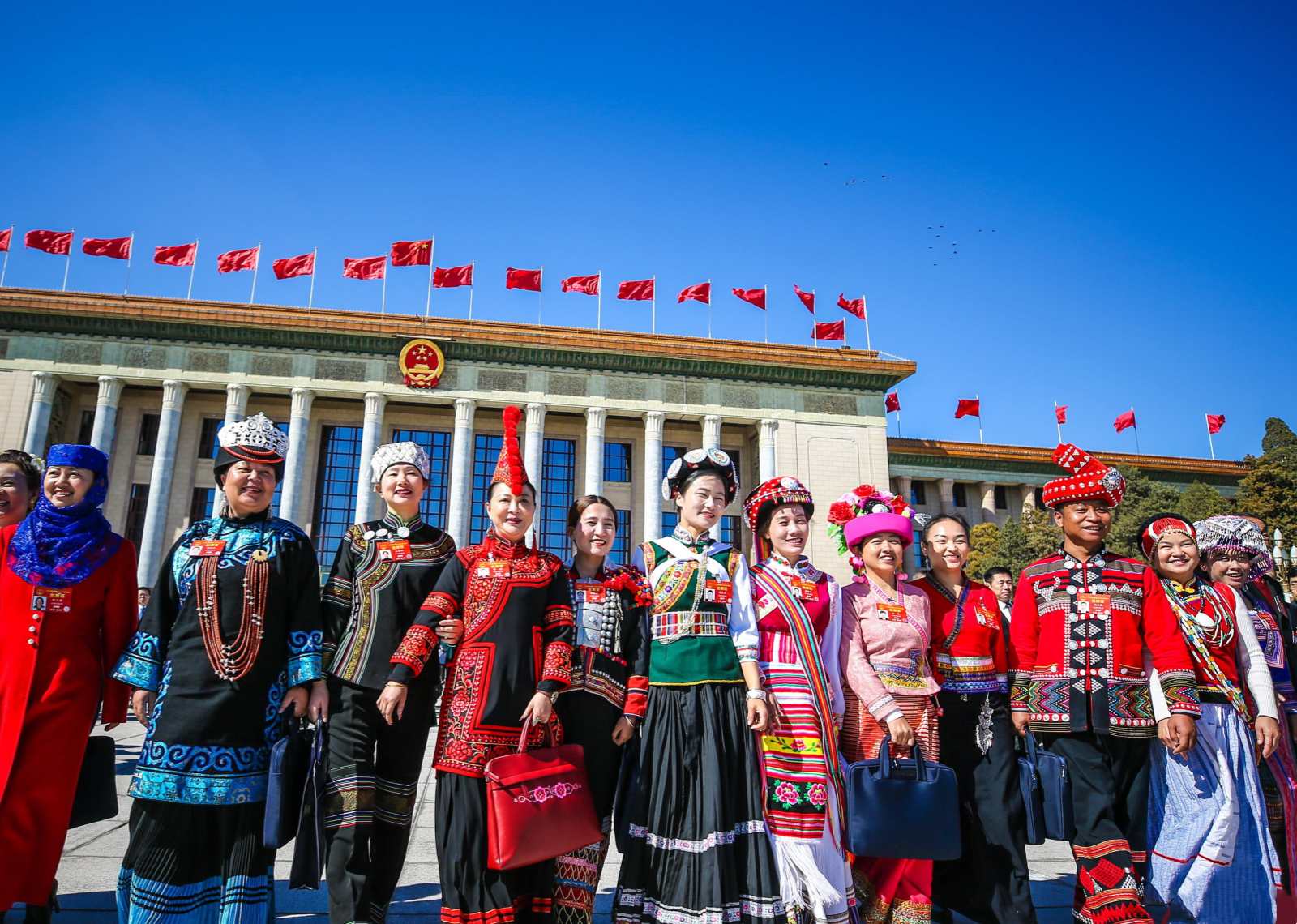
25 Ethic Minority Groups in Yunnan
Yunnan proudly hosts China’s most diverse ethnic mosaic, home to 25 officially recognized minority groups, including:
- Yi, Bai, Hani, Dai, Zhuang, Miao, Hui, Lisu, Lahu, Wa, Naxi, Yao, Tibetan, Jingpo, Blang, Pumi, Nu, Achang, Jino, De’ang, Mongols, Derung, Manchu, Sui, and Buyi.
Remarkably, 15 of these groups are found ONLY in Yunnan:
✅ Hani (cloud-kissing rice terraces)
✅ Dai (vibrant water-splashing festivals)
✅ Naxi (Dongba pictographs—the world’s last living hieroglyphs)
✅ Wa (sacred drum dances)
✅ Jingpo (colorful Munao festivities)
✅ Blang (ancient tea-growing traditions)
✅ Pumi (mountain-based pastoral culture)
✅ Achang (master artisans of silverwork)
✅ Jino (one of China’s smallest ethnic groups)
✅ De’ang (legendary dragon descendants)
✅ Nu (cliffside villages along the Nu River)
✅ Derung (tattooed face customs)
✅ Lisu (thrilling “Knife-Pole Festival”)
✅ Bulang (centuries-old Pu’er tea heritage)
✅ Hui (Islamic influences in Yunnan’s highlands)
Together, these groups form 34% of Yunnan’s population, creating a living cultural museum where ancient traditions thrive alongside modernity. From the Yi’s torch-lit celebrations to the Bai’s tie-dye craftsmanship, Yunnan isn’t just a destination—it’s a gateway to China’s multicultural soul.
A Glimpse into Yunnan’s Diverse Peoples
Below are photos and introductions of some representative ethnic minority groups in Yunnan, including their primary settlement areas and unique traditional festivals.
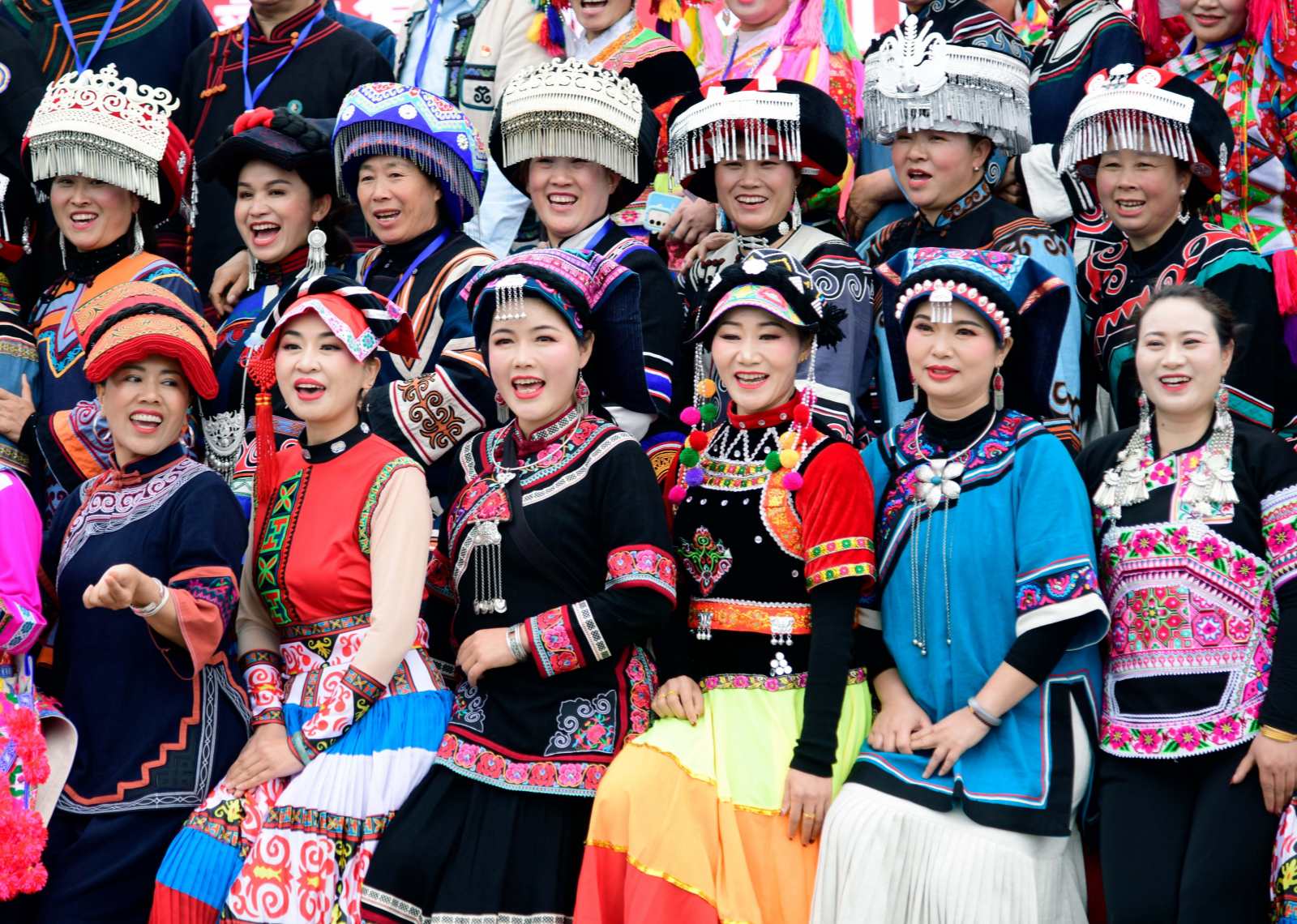
The Yi People: Proud Traditions of the Mountains
The Yi are the largest ethnic minority in Yunnan, numbering over 4 million. They primarily inhabit the mountainous areas, with significant concentrations in places like Chuxiong. The Yi are renowned for their strong connection to nature and their proud warrior traditions. Their traditional religion, Bimoism, plays a central role in their daily lives. Visitors might witness their vibrant Torch Festival, a celebration filled with music, dance, and fire.
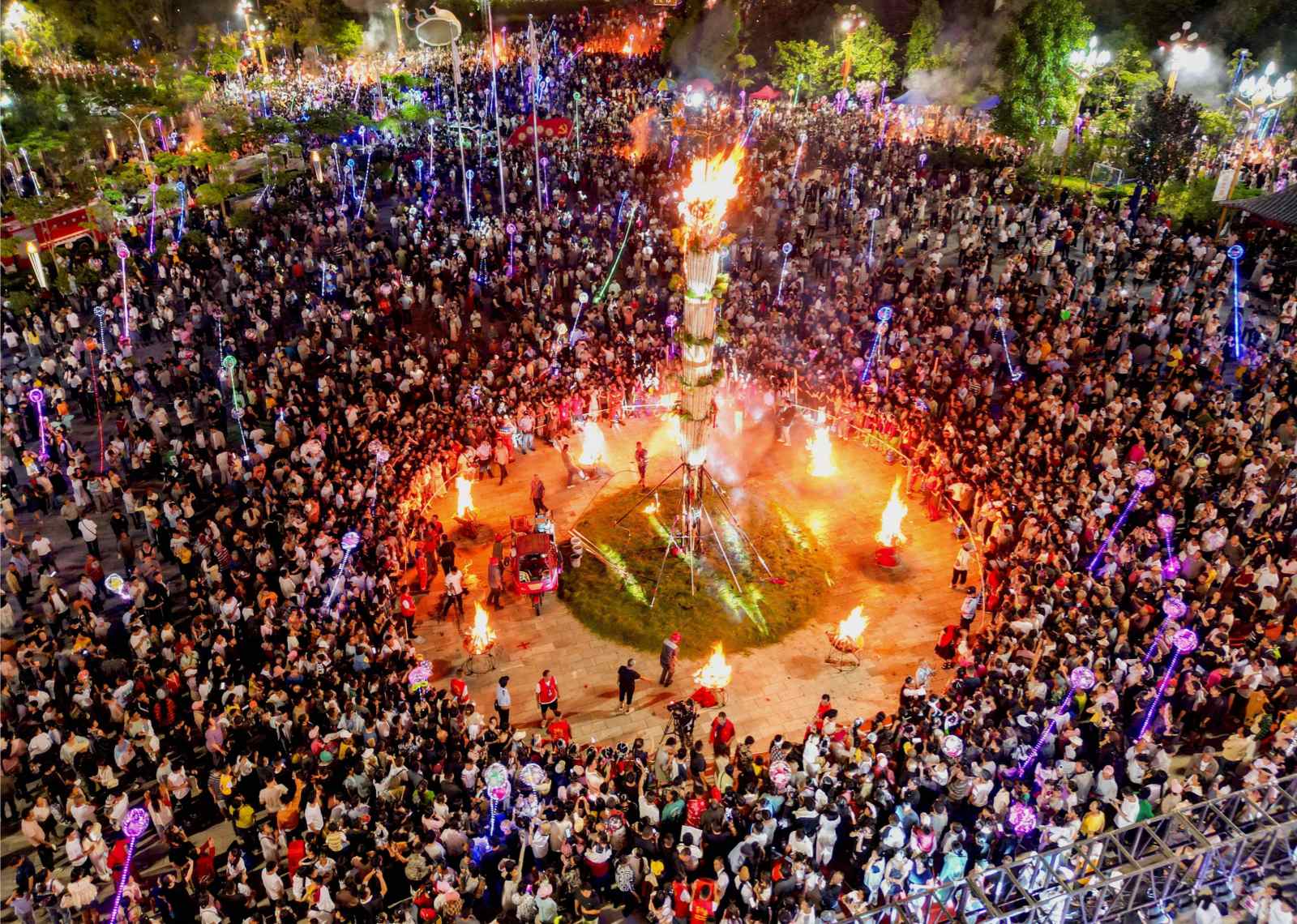
The Bai People: Purity and Craftsmanship in Dali
With a population of around 1.5 million, the Bai are largely concentrated in the Dali Bai Autonomous Prefecture. The color white is sacred to them, symbolizing purity, and this is often reflected in their traditional clothing and the distinct white-and-blue architecture of their homes. The Bai are skilled artisans, particularly known for their intricate woodcarving and tie-dye techniques. The annual March Fair is a lively event showcasing their vibrant culture.
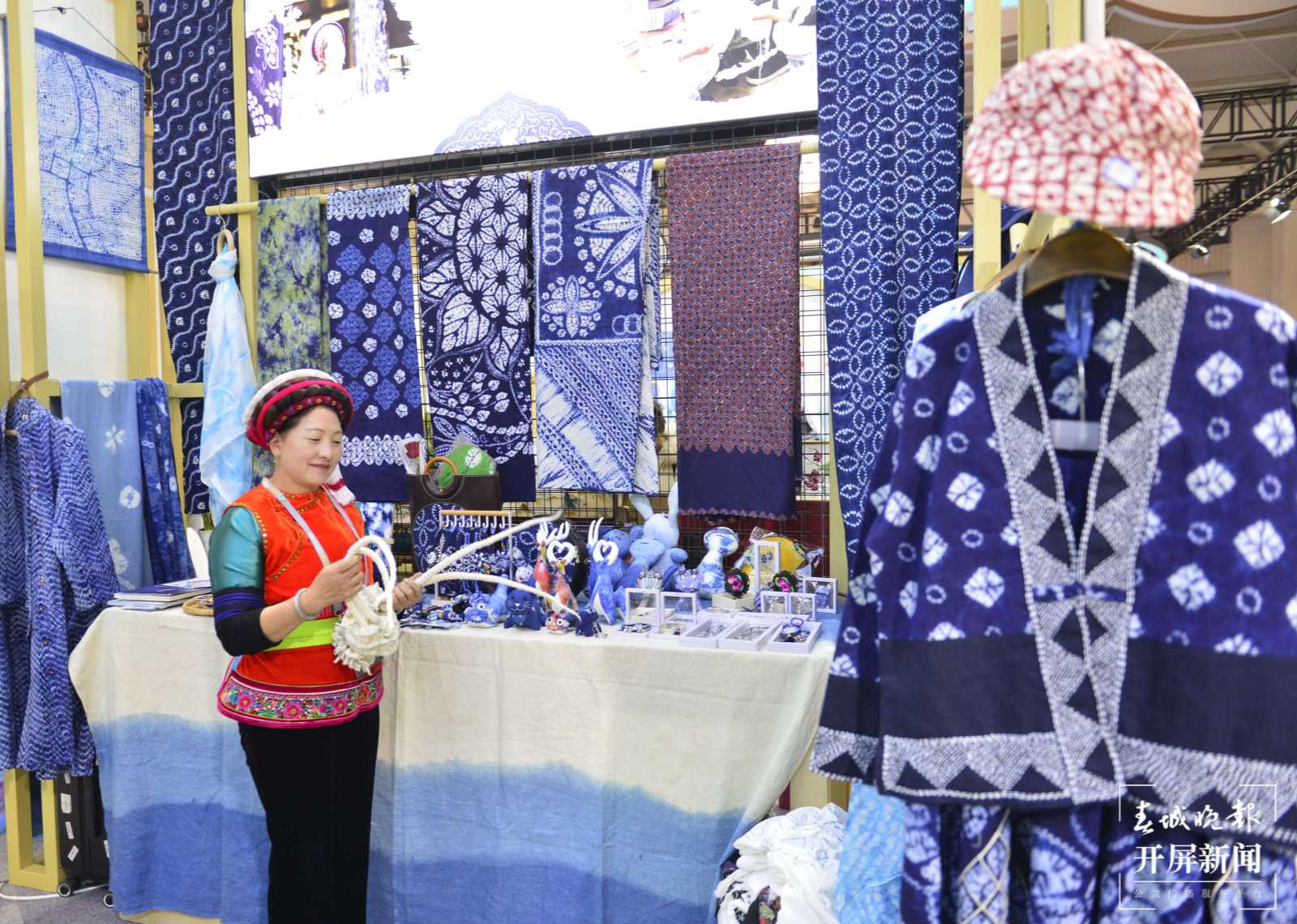
The Dai People: Water, Buddhism, and Tropical Life
The Dai, numbering about 1.2 million, primarily reside in the tropical regions of Xishuangbanna and Dehong. They are deeply connected to water and practice Theravada Buddhism, evident in their beautiful temples and stilt houses. Their most famous celebration is the Water-Splashing Festival, a joyous event marking the Dai New Year. Experiencing this festival is truly unforgettable.
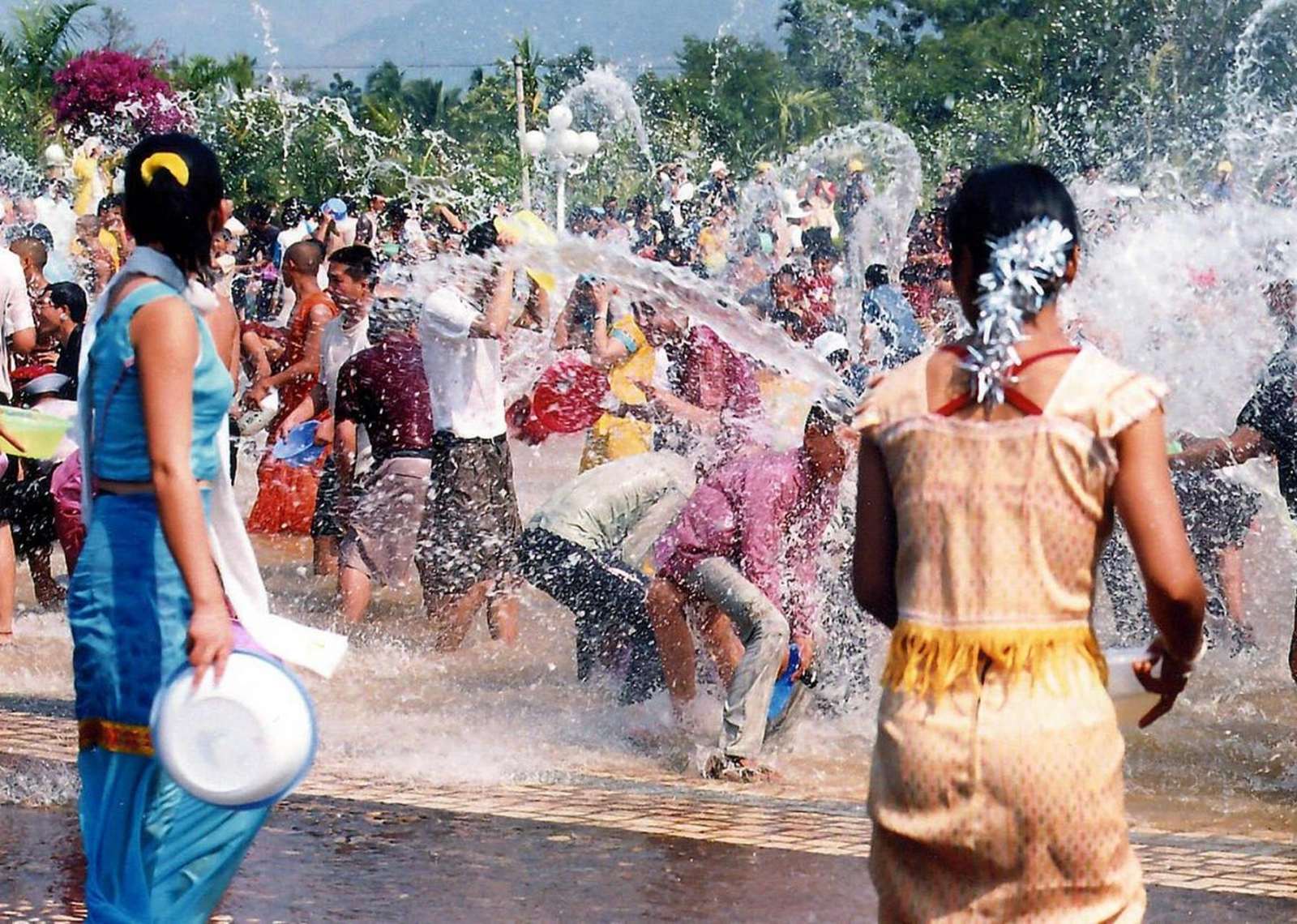
The Naxi People: Matrilineal Society and Dongba Culture
The Naxi, primarily found in Lijiang, are distinctive for their matrilineal society, where women often hold significant roles. They are the custodians of the ancient Dongba culture, which includes a unique pictographic written language and rich traditions of music and dance. Exploring Lijiang’s ancient lanes reveals the depth of Naxi heritage.
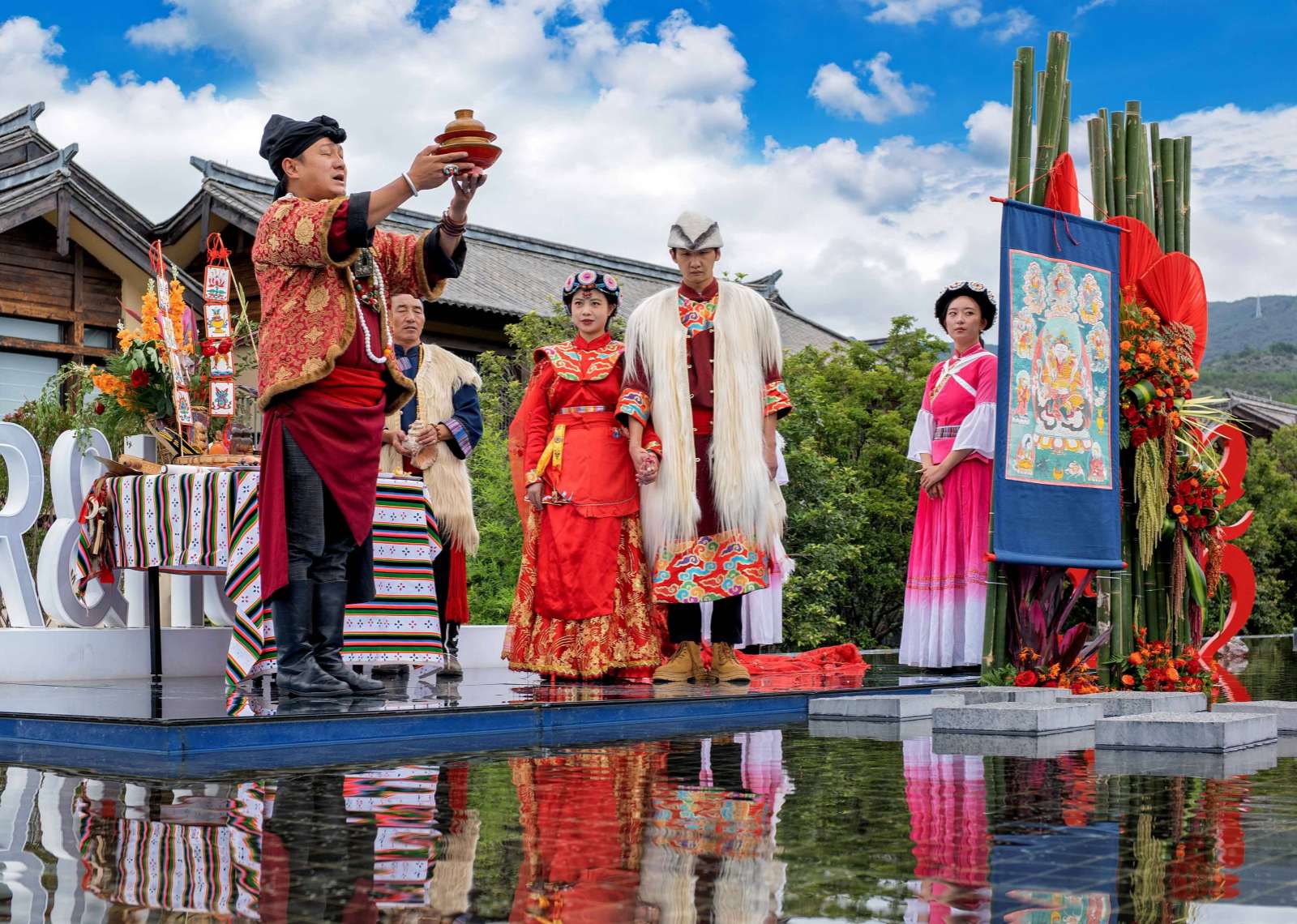
The Hani People: Masters of the Rice Terraces
In the Honghe region, the Hani people have sculpted the landscape with their magnificent rice terraces, a UNESCO World Heritage site. These terraces, carved over centuries, are a testament to their incredible agricultural ingenuity and sophisticated irrigation systems. Their Long Street Banquet is a memorable communal event where entire villages share food and celebrate.
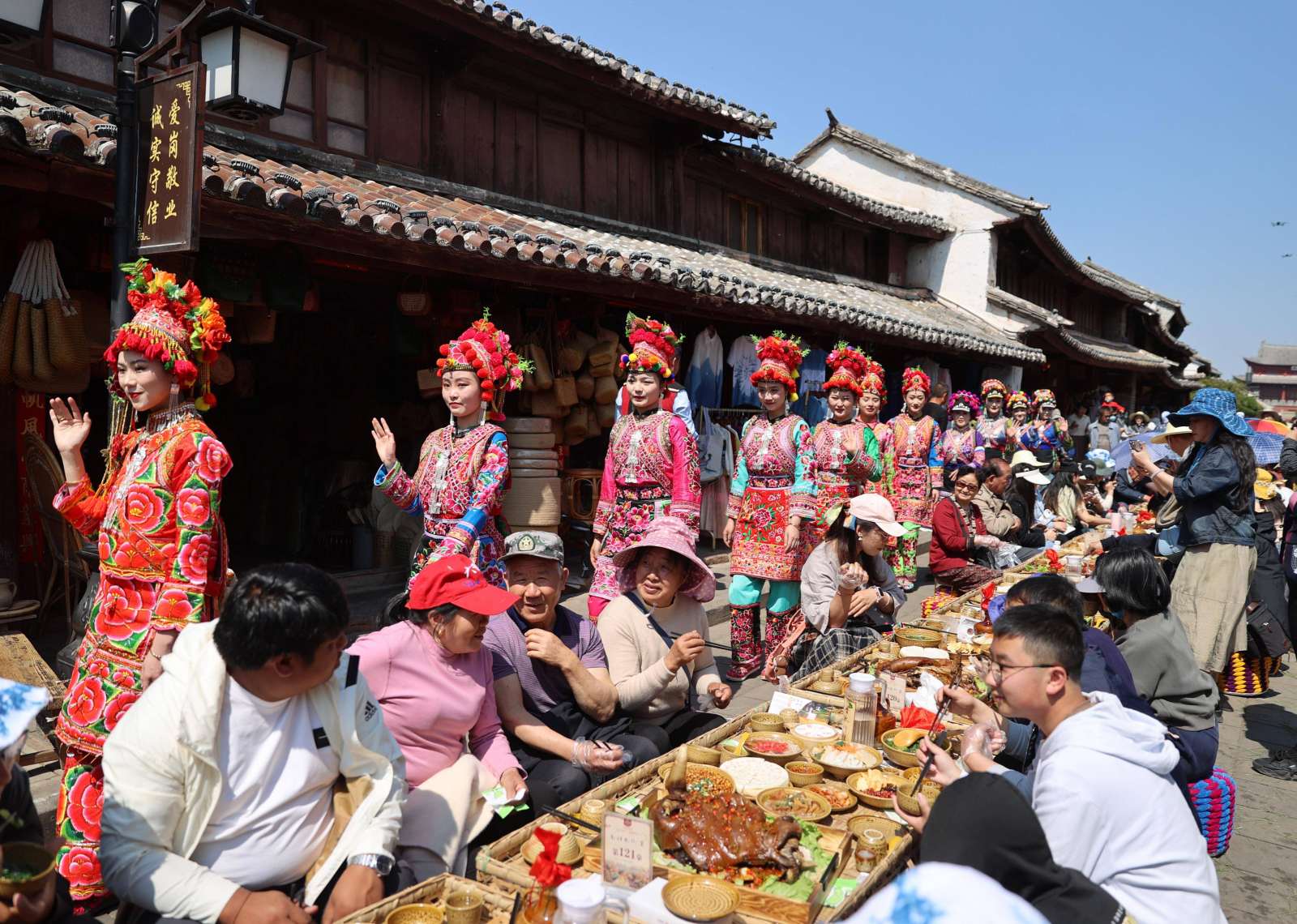
The Hui People: Islamic Heritage in Yunnan
The Hui are a significant Muslim ethnic group in Yunnan, primarily found in urban areas and along ancient trade routes. They are known for their distinct cuisine, including delicious hand-pulled noodles and stewed mutton. Their mosques and culinary traditions add a unique flavor to Yunnan’s diverse cultural landscape.
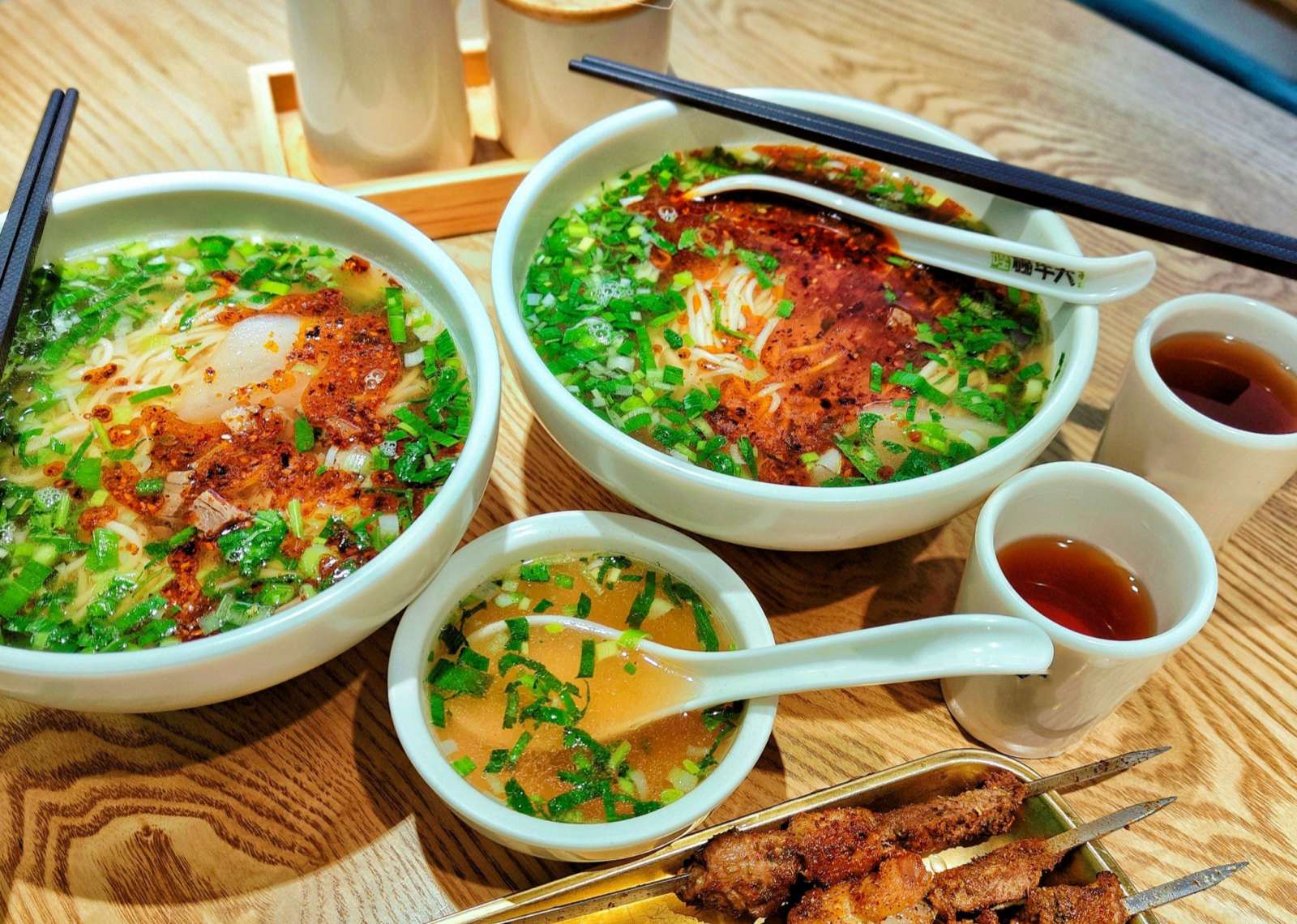
The Miao People: Colorful Attire and Vibrant Festivals
Scattered throughout eastern Yunnan, the Miao are instantly recognizable by their incredibly colorful clothing and elaborate silver jewelry. They are masters of embroidery and celebrate a variety of lively festivals featuring traditional music and dance, particularly with the lusheng, a type of reed pipe instrument.
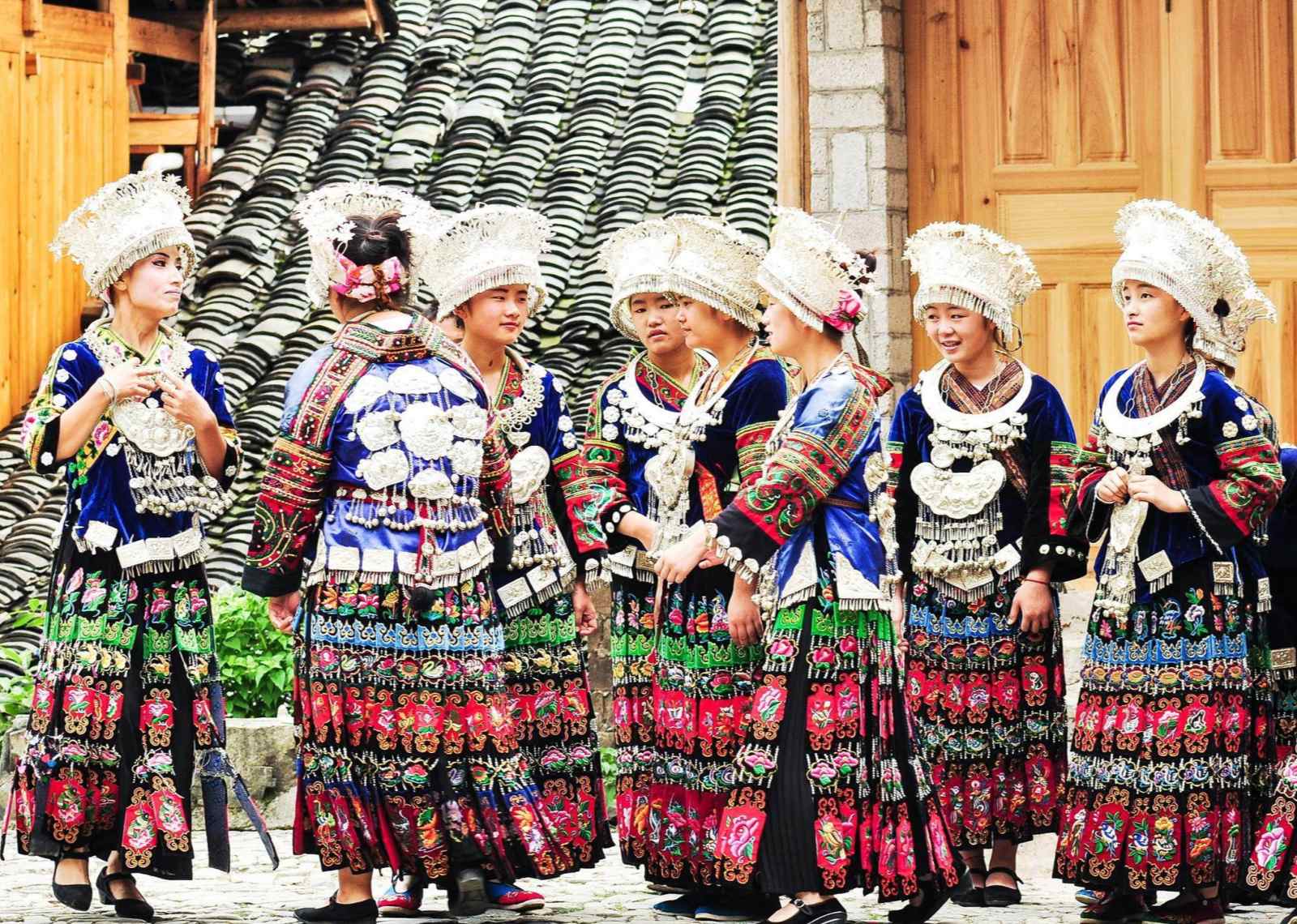
The Tibetan People: Spiritual Life on the High Plateau
In the high-altitude regions around Shangri-La, you’ll encounter the Tibetan people. Their culture is deeply spiritual, centered around Tibetan Buddhism, with impressive monasteries like Songzanlin. Their traditional clothing is adapted to the cold climate, and their hospitality is legendary. Visiting during the Tibetan New Year offers a unique cultural immersion.
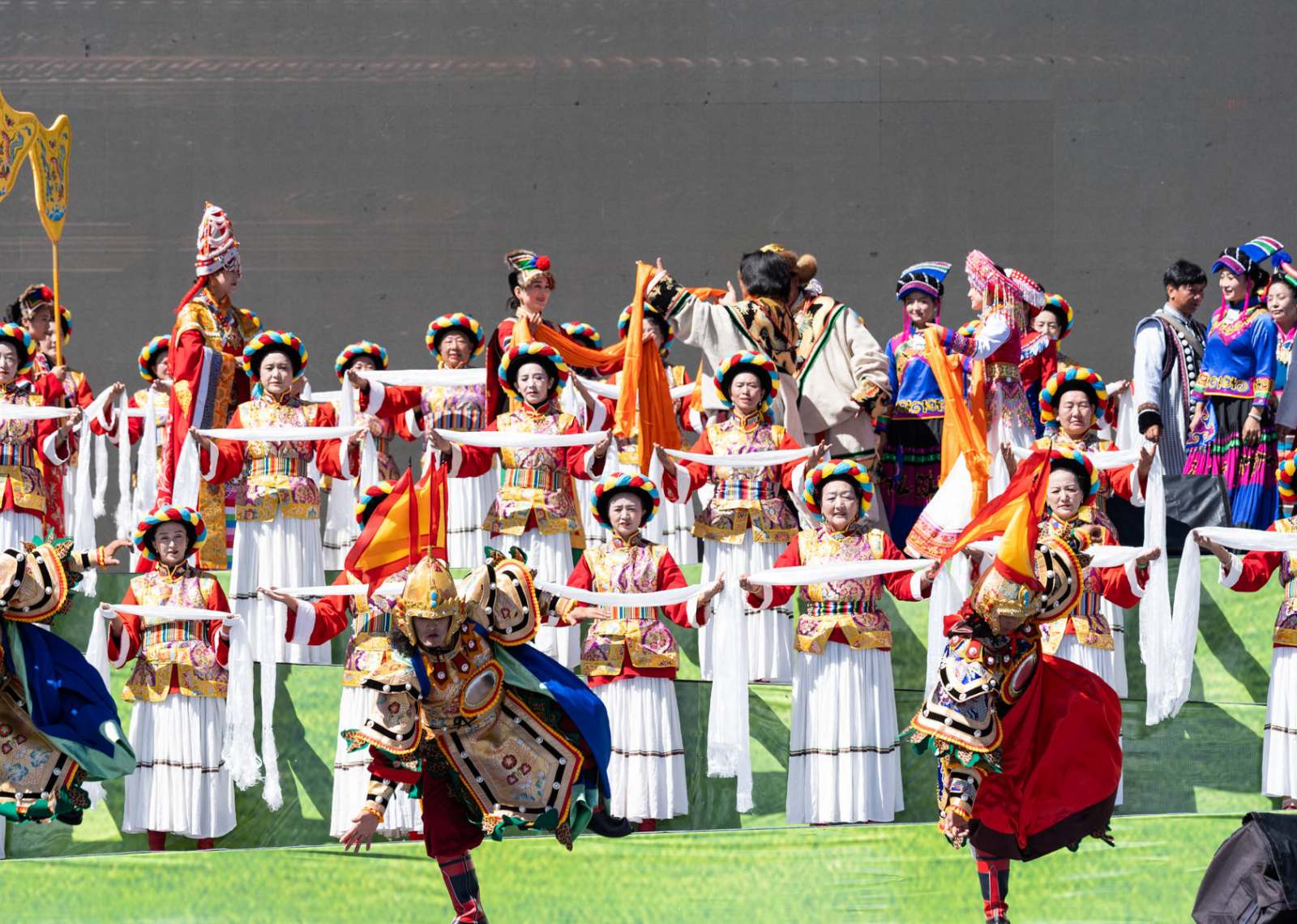
Other Unique Minorities
Yunnan is also home to many other fascinating groups, each contributing to the province’s incredible diversity:
- Lisu: Found in the mountainous northwest, known for hunting skills and traditional medicine.
- Wa: In the remote Wa Hills, they preserve unique oral traditions and ritual dances.
- Lahu: In southern Yunnan, they are known for their bamboo houses and hunting lore.
- Jingpo: In Dehong, they celebrate the Munao Zongge square dance festival.
- Blang (Bulang): Residing in tea mountains, they are known for ancient tea gardens and Pu’er tea traditions.
- Pumi: In alpine regions, blending Tibetan and Naxi influences.
- Achang: From Dehong valleys, recognized for their forging craftsmanship.
- De’ang: Also in Dehong, known for their tea culture and Buddhist ties.
- Nu: Along the Nu River, maintaining remote hamlets and animist beliefs.
- Derung (Dulong): In the isolated Dulongjiang valley, known for the facial tattoo heritage of elder women.
- Jino: In Xishuangbanna mountains, known for community drum towers.
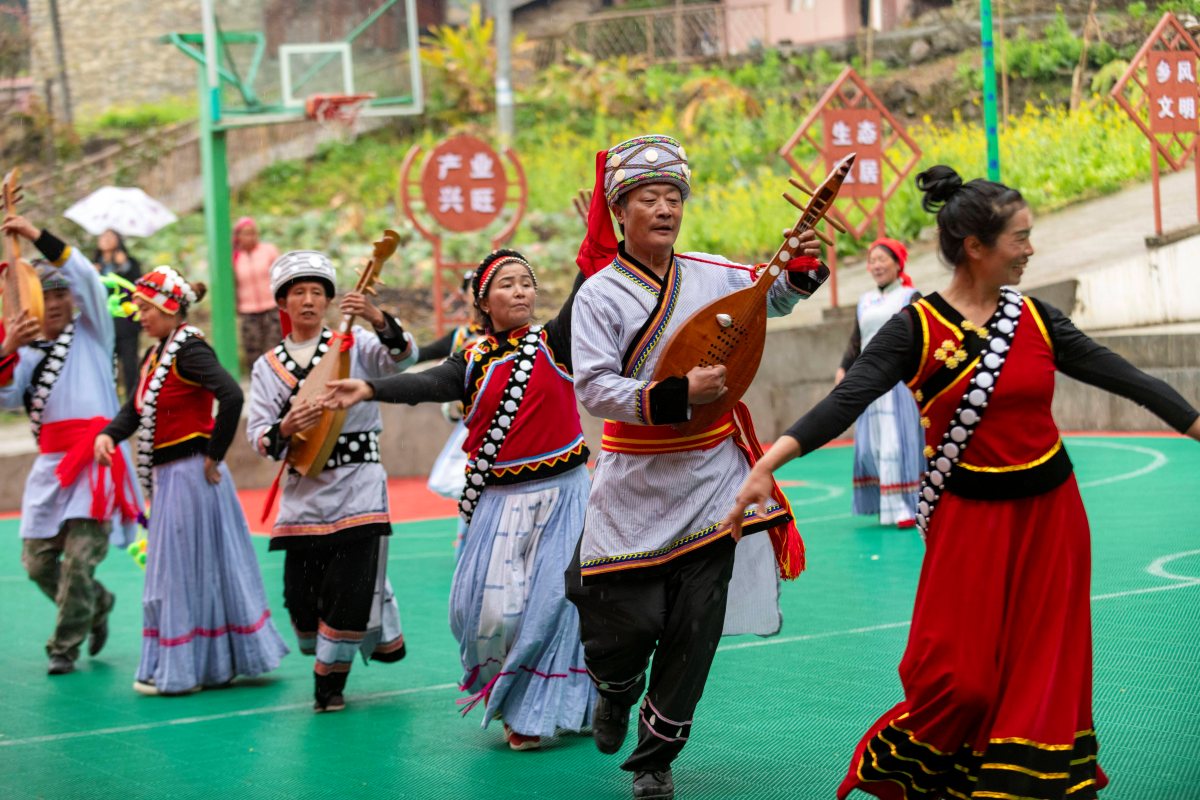
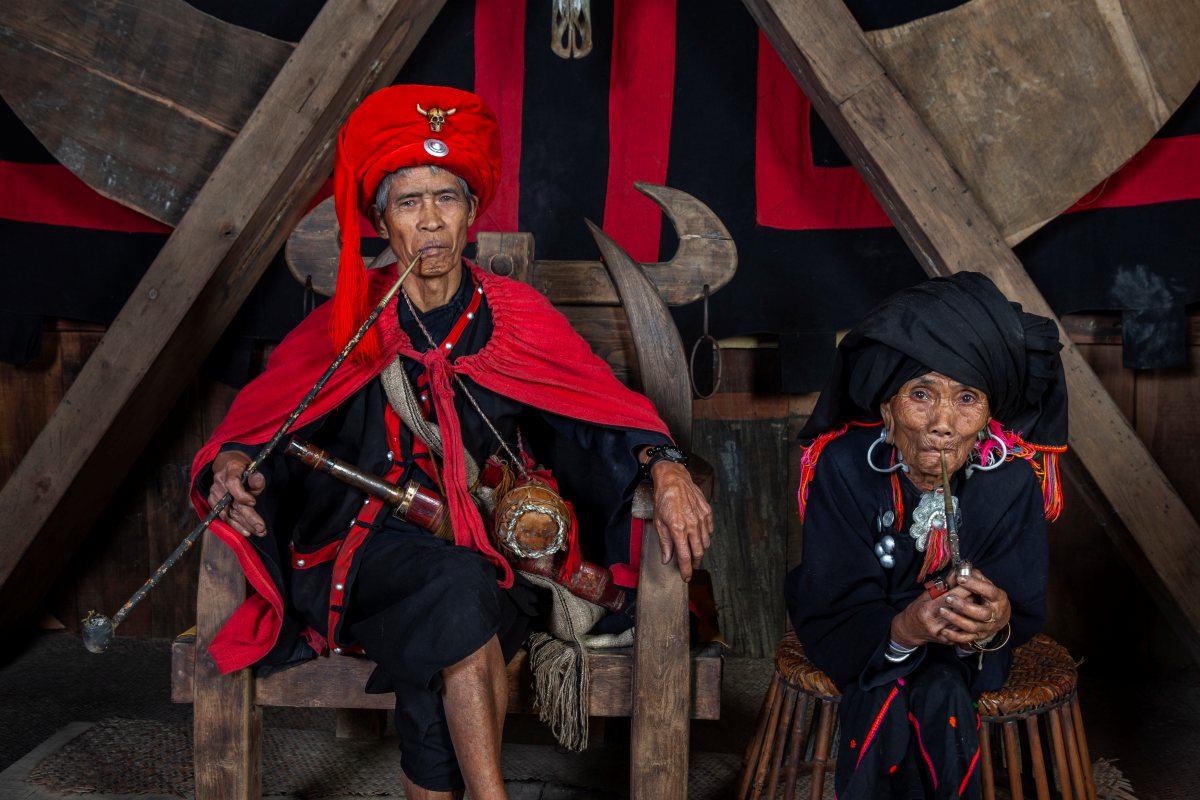
To truly appreciate the depth of Yunnan’s cultural tapestry, here’s a summary of key cultural aspects and geographic distributions:
| Ethic Group | Primary Region in Yunnan | key Cultural Traits | Notable Festivals/Practices |
| Yi | Chuxiong, mountainous areas | Warrior traditions, Bimoism, traditional farming | Torch Festival |
| Bai | Dali Bai Autonomous Prefecture | White as sacred, craftsmanship (tie-dye, woodcarving) | March Fair, Three-Course Tea ceremony |
| Dai | Xishuangbanna, Dehong | Theravada Buddhism, water culture, stilt houses | Water-Splashing Festival |
| Naxi | Lijiang | Matrilineal society, Dongba pictographs, ancient music | Baisha murals |
| Hani | Honghe (Yuanyang) | Rice terraces, agricultural expertise, mushroom-roof houses | Long Street Banquet |
| Tibetan | Diqing (Shangri-La) | Tibetan Buddhism, high-altitude adaptation | Tibetan New Year |
| Hui | Urban areas, trade routes | Islamic culture, distinctive cuisine (halal) | Eid al-Fit |
Yunnan’s 25 ethnic minority groups, each with their own distinct customs, languages, and traditions, create a living tapestry that is both fascinating and deeply moving. As a travel expert, I can assure you that a journey through Yunnan offers more than just sightseeing; it provides a profound opportunity to connect with ancient cultures and witness traditions thriving in the modern world. Whether it’s the architectural wonders of the Bai, the spiritual tranquility of the Tibetans, or the agricultural marvels of the Hani, Yunnan promises an enriching and unforgettable adventure. I highly recommend visiting these communities respectfully, engaging with locals, and embracing the vibrant experiences they offer.
Recommended Yunnan Tour:
Yunnan Minority Culture Tour with Lugu Lake Kunming Dali Lijiang
Yunnan Family Tour: Kunming Dali Shangri-La Lijiang Lugu Lake